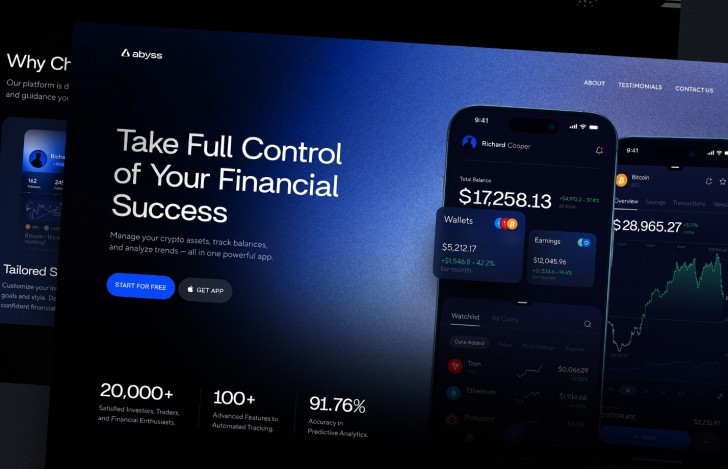Why "Good Enough" Isn’t Good Enough
In the early days of the internet, having any website was a competitive advantage. Today, merely having one isn’t enough—it needs to be fast, intuitive, and aligned with your business goals. Yet many companies still treat web development as a checkbox item, opting for the cheapest option available.
This is a mistake.
Cheap web development isn’t really cheap. A poorly built site drains resources through constant fixes, lost conversions, and missed opportunities. The real question isn’t "How much does a website cost?" but "How much does a bad website cost?"
The Illusion of Savings
Outsourcing web development to the lowest bidder follows the same logic as buying a $20 watch—it might keep time (for a while), but you’ll replace it sooner than expected. Common pitfalls of cut-rate development include:
- Technical debt – Quick fixes now mean expensive rewrites later.
- Security vulnerabilities – Flimsy code attracts exploits.
- Poor scalability – A site that can’t grow with your business is a liability.
A professional web development agency avoids these issues by focusing on long-term value, not just upfront cost.
The Anatomy of a Well-Built Website
Great web development isn’t about stacking features—it’s about solving problems. Here’s what separates a functional site from a high-performing asset:
1. Strategic Planning
Before writing a single line of code, a skilled custom website development company will:
- Analyze your audience
- Map user journeys
- Define measurable goals
This prevents the all-too-common scenario of a "pretty but useless" website.
2. Performance as a Priority
Google’s Core Web Vitals now directly impact search rankings. Slow sites don’t just frustrate users—they’re punished by algorithms. Proper development optimizes:
- Load times
- Mobile responsiveness
- Server efficiency
3. Maintainability
A website isn’t a one-time project; it’s a living system. Clean, documented code allows for easy updates without starting from scratch.
When to Invest in Custom Development
Off-the-shelf templates work for simple needs, but businesses with complex workflows or unique customer interactions often need tailored solutions. A custom website development company can:
- Integrate with legacy systems
- Automate manual processes
- Build interactive tools that differentiate your brand
The ROI of Doing It Right: How Quality Development Drives Real Revenue
A well-executed website isn’t an expense—it’s a profit center. Too many businesses treat their website as a static digital brochure when, in reality, it’s one of their most powerful sales and branding tools. Cutting corners on development might save money upfront, but the long-term losses in revenue, customer trust, and operational efficiency far outweigh the initial "savings."
Let’s break down the real financial impact of quality web development:
1. Speed = Money
⦿ A 1-second delay in load time can drop conversions by 7% (Akamai).
- For an e-commerce site doing 100,000/day,that’s∗∗100,000/day,that’s∗∗2.5 million in lost sales per year.**
- Google’s research shows that 53% of mobile users abandon a page if it takes longer than 3 seconds to load.
⦿ Faster sites also rank higher. Since 2018, Google’s Speed Update has prioritized fast-loading pages in mobile search results.
2. User Experience Dictates Loyalty
⦿ 88% of users won’t return after a bad experience (Amazon Web Services).
- Acquiring a new customer costs 5x more than retaining an existing one (Harvard Business Review).
- Poor UX—like confusing navigation, broken forms, or unoptimized mobile design—directly increases bounce rates and kills lead generation.
⦿ A well-structured, intuitive site keeps users engaged, reducing drop-offs at critical points (checkout, sign-up forms, contact pages).
3. Higher Conversion Rates
⦿ A strategically developed website doesn’t just look good—it’s engineered to guide visitors toward actions (purchases, sign-ups, inquiries).
- Simple optimizations (like faster checkout flows or clearer CTAs) can boost conversions by 20-30% (Baymard Institute).
- For SaaS companies, a 10% increase in conversion rates can double revenue (Forrester)
⦿ A custom website development company ensures your site isn’t just functional but psychologically persuasive, leveraging principles of design, copywriting, and usability.
4. Lower Bounce Rates = More Opportunities
⦿ If visitors leave within seconds, your marketing spend is wasted.
- The average bounce rate for websites is 41-55% (Google Analytics benchmarks). A well-built site can cut that in half.
- High bounce rates also hurt SEO—Google interprets them as a signal of poor relevance or quality.
⦿ Smooth navigation, fast loading, and mobile optimization keep users exploring—and buying.
5. Reduced Long-Term Maintenance Costs
⦿ Cheap development often leads to:
- Spaghetti code that’s expensive to modify.
- Security flaws requiring emergency patches (or worse, breach recovery).
- Compatibility issues with new browsers, devices, or third-party tools.
⦿ A professionally built site, on the other hand:
- Uses modular, clean code for easy updates.
- Follows security best practices (e.g., regular audits, HTTPS, sanitized inputs).
- Scales seamlessly as your business grows.
6. SEO Advantages = Free Traffic
⦿ Technical SEO (site structure, speed, mobile-friendliness) is foundational to ranking.
- 60% of Google’s ranking factors relate to UX and performance (Moz).
- Sites with poor Core Web Vitals lose up to 20% of potential organic traffic (Search Engine Journal).
⦿ A web development agency with SEO expertise builds these optimizations into the foundation, saving you from costly retrofits later.
The Bottom Line
A high-performance website isn’t a cost—it’s a competitive advantage. The difference between a $5,000 template and a strategically developed custom site isn’t just aesthetics; it’s thousands (or millions) in lost or gained revenue over time.
If your site is underperforming, the question isn’t "Can we afford to fix it?" but "Can we afford not to?"
Conclusion: Pay Now or Pay More Later
The web isn’t getting simpler. As user expectations rise, so do the stakes of having a subpar site. The choice isn’t between spending and not spending—it’s between spending wisely now or spending excessively later.
If you’re evaluating partners, look for a web development agency with a track record of building scalable, secure, and strategic solutions. Because in the digital world, "good enough" is often the most expensive option of all.
 Editorial staff
Editorial staff

 Editorial staff
Editorial staff


